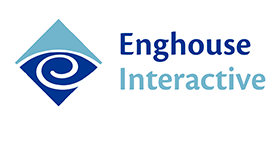Call centre agents are on the customer experience frontline, representing your organisation to consumers. In an increasingly digital world, they could be the only employee that a customer actually interacts with. Being an agent is not easy.
Customers are becoming more and more demanding, often upset and angry, which adds to agent pressure. These stresses can lead to agents burning out and quitting their jobs, which impacts the wider contact centre.
As well as providing agents with the support they need to work effectively, companies also need to recognise and reward good performance.
They need to move beyond traditional metrics such as Average Handling Time or the number of calls answered per shift.
Recognising performance rather than simply tracking basic metrics benefits agents on an individual basis as they can see they are making a difference. It also provides best practice lessons that can be shared across the contact centre.
However, with many contact centres handling thousands of interactions every day, identifying good performance can feel like searching for a needle in a haystack.
Luckily, AI technology can help automate the heavy lifting, recognising where agents have delivered excellent service. Here are four areas where it adds value to understanding call centre agent performance:
1. Analysing Interaction Recordings
In the past the only way of checking quality and identifying best practice was through manually reading through transcripts of interactions.
And as no one person has the time to read every transcript, supervisors had to pick a selection to analyse. This meant it was easy to miss good performances, as well as introducing variability into analysis.
Using AI can transform the process enabling companies to automatically analyse every interaction, on every channel.
The system can then flag a shortlist of interactions for supervisors to scrutinise in more detail, spotting best practice and outstanding achievements which can then be properly rewarded.
2. Analysing the Voice of the Customer
Customer feedback is crucial to improving products and services, meaning more and more organisations now run Voice of the CustomerVoC) programmes.
Whether collected through post-call surveys or through interaction analysis, VoC provides key data into call centre agent performance.
Again, using AI-based text analytics, it enables companies to identify excellent performance and training opportunities from interactions, without needing to manually read every one. VoC data also enables companies to improve their customer service operations and processes.
For example, they can see where customers get stuck or spot common issues and drive effective changes using this info.
3. Analysing Agent Performance Around Knowledge
Customers have a growing range of questions that they want answering. Introducing a centralised knowledge base enables companies to meet this need.
Knowledge bases can provide accurate, consistent responses across every channel, from chatbots and web self-service to calls and emails.
Agents have a strong part to play in establishing knowledge bases and keeping them up to date. So, recognise knowledge champions who contribute answers and feedback.
Use them as examples for the wider contact centre. This shows agents that you value their work and encourages them to provide more feedback.
Analysing the questions agents ask the knowledge base also shows where individual agents may be less confident and in need of refresher training.
4. Analysing the Voice of the Employee
Listening to employees and acting on their insight is vital to improving their experience and engagement. Companies should therefore run Voice of the Employee programmes to collect feedback from their people on a regular basis, via surveys, interviews, and other means.
Use AI technology to make it easier to analyse open questions in surveys and identify themes and issues to act on.
Recognising areas for improvement and fixing problems helps motivate agents as it shows they are being listened to.
Agents can also be rewarded for ideas they suggest that improve how the company operates. There’s a direct link between happy staff and excellent customer service so it is important to reward their hard work.
Understanding Call Centre Agent Performance
Ensuring agents are working effectively is key to delivering high-quality customer service and retaining their skills.
Therefore, use technology to give deeper insight into performance, allowing you to recognise, reward and share best practice across your organisation.
This blog post has been re-published by kind permission of Enghouse Interactive – View the Original Article
For more information about Enghouse Interactive - visit the Enghouse Interactive Website
Call Centre Helper is not responsible for the content of these guest blog posts. The opinions expressed in this article are those of the author, and do not necessarily reflect those of Call Centre Helper.
Author: Enghouse Interactive
Published On: 25th Oct 2022 - Last modified: 1st Nov 2022
Read more about - Guest Blogs, Enghouse Interactive






 Enghouse Interactive delivers technology and expertise to help bring your customers closer to your business through its wide range of customer contact solutions.
Enghouse Interactive delivers technology and expertise to help bring your customers closer to your business through its wide range of customer contact solutions. 




























